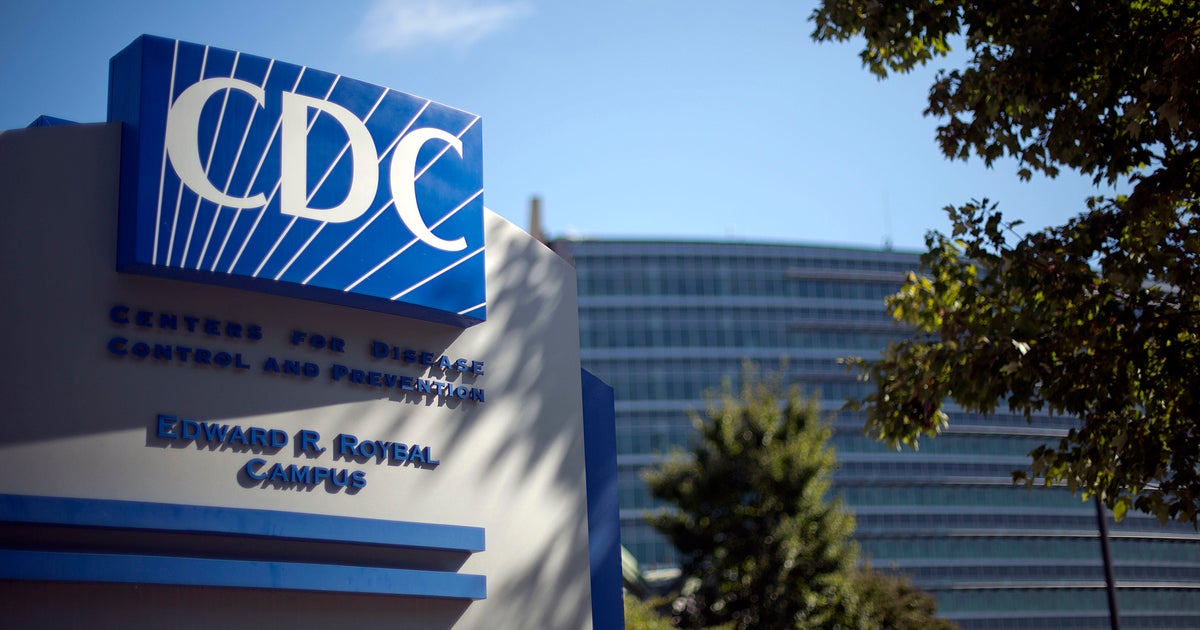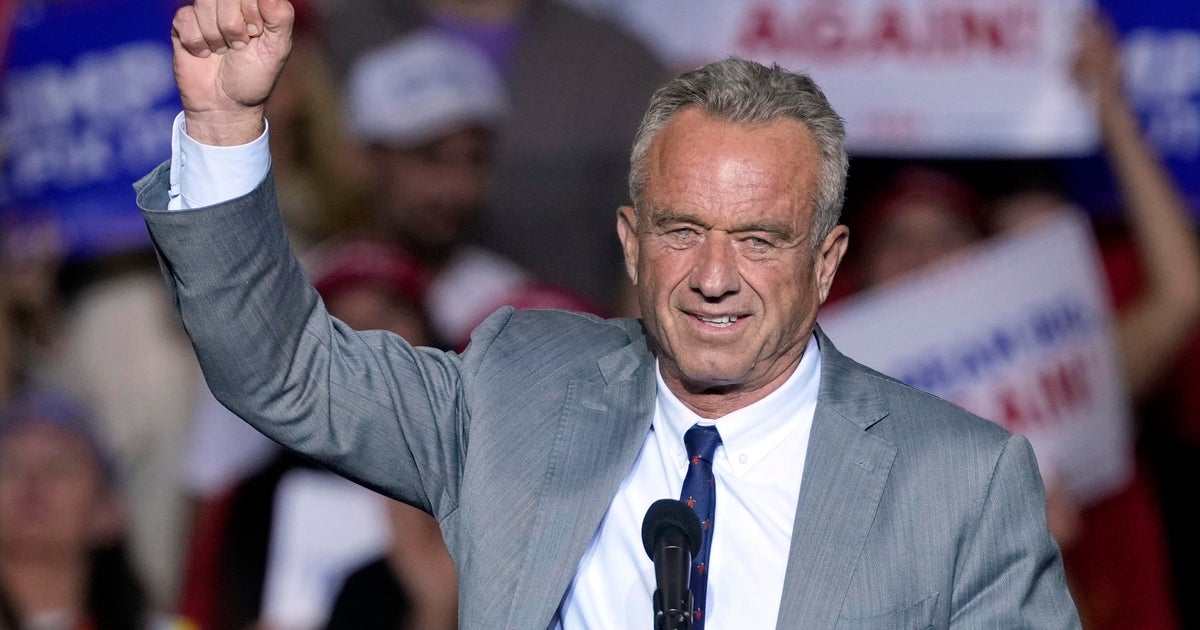CBS News
Many more seniors are getting COVID shots this year, CDC reports

Nearly 4 in 10 seniors have gotten a COVID-19 vaccine so far this year, new survey data published by the Centers for Disease Control and Prevention suggests, marking a steep increase in vaccination rates compared with the same time last year.
The data from the CDC’s National Immunization Survey estimates that 37.6% of Americans ages 65 and older had gotten a shot of this season’s updated COVID-19 vaccine by Nov. 2, compared with 22.6% of older adults by the same week in 2023.
Younger adults are also outpacing last year’s rollout of COVID-19 shots, though not by the same large margin.
By contrast, uptake of influenza vaccines this fall among seniors – 55.3% by Nov. 2 – is almost the same as at this time last year.
Nearly all states are seeing COVID-19 vaccination rates in adults this year that are similar or better than this time last season, except for Idaho, the CDC’s survey data suggests.
Rates among nursing home residents getting a COVID-19 vaccine are also better this year: 27% were reported “up to date” on this season’s shots through Nov. 3, compared with 21% by around the same time in 2023.
More data on COVID-19 vaccinations among seniors is expected later this fall, as the CDC analyzes records gathered from the Centers for Medicare and Medicaid Services.
Health officials had been hoping for improved COVID-19 vaccination rates this year, after authorities worked to launch this year’s COVID shots closer to when the annual flu shot is also shipped out to doctor’s offices and pharmacies.
Last year’s round of COVID-19 vaccines did not get off the ground in many places until late September, long after providers had already begun offering flu shots. CDC officials said that led to confusing messaging and logistical fumbles that may have hampered vaccination rates.
“Weekly comparisons to previous season should take into account differences between seasons in vaccine availability dates. 2023–24 COVID-19 vaccines were first available mid-September 2023, and 2024–25 COVID-19 vaccines were first available at the end of August 2024,” according to a statement on the CDC website.
November is a key milestone in the fall vaccination campaign every year, given that health authorities generally recommend most people get their flu shot by the end of October before infections start to climb.
People not yet vaccinated are still recommended to get a shot, as long as viruses could still be infecting people for the season.
The CDC says that rates of COVID-19 and flu remain low nationwide, ahead of a wave that the agency’s disease forecasters expect could reach peak hospitalizations worse than those in this past summer’s COVID-19 wave.
CBS News
Person trapped beneath building collapse rubble, Kentucky officials say

Watch CBS News
Be the first to know
Get browser notifications for breaking news, live events, and exclusive reporting.
CBS News
Can Trump appoint Matt Gaetz without Senate confirmation? Here’s what to know about recess appointments

Washington — President-elect Donald Trump’s selection of former Rep. Matt Gaetz to be attorney general is his most controversial Cabinet pick yet, and the Florida Republican is likely to face obstacles in the confirmation process.
But Trump is seeking an important change to the Senate confirmation process that would allow him to install some officials and sidestep lengthy hearings and a floor vote, in which nominees need a majority vote to be confirmed.
Before Senate Republicans elected their leaders for the 119th Congress, Trump demanded that the candidates agree to recess appointments, which would give him the option of bypassing the Senate’s role of approving or rejecting the president’s nominations. Trump argued that without the ability to temporarily install nominees he would not be able to fill the positions in a timely manner.
The legal basis for recess appointments emanates from a constitutional clause that gives the president “the power to fill up all vacancies that may happen during the recess of the Senate.” A Supreme Court ruling in 2014 concluded that recess appointments could only be made when the Senate is not in session for 10 or more days, after President Barack Obama made controversial appointments when senators were on break.
Senators often leave Washington for long stretches of time, but have utilized pro forma sessions to prevent presidents from installing nominees without their consent.
“In recent years, the Senate — regardless of which party controlled it — has used pro forma sessions to ensure that it is never in recess for more than three days,” said Josh Chafetz, a law and politics professor at Georgetown University.
For Trump to make recess appointments, the Senate would have to agree, through a simple majority vote, to go on recess for at least 10 days. The House must also agree to allow the Senate to adjourn, but Chavetz says if the House does not agree, or if it disagrees with the Senate on the length of adjournment, then the president has the constitutional power to adjourn both chambers for a timeframe of his choosing.
“That second route has never been used before in U.S. history, so no one is quite sure how it would work,” Chafetz said.
A recess appointment, however, does not have the same benefits as a nominee confirmed by the Senate. Without Senate approval, the appointee would not be paid. The appointee can serve in the role for up to two years, depending on when the appointment was made. After that, the individual could be installed again through a recess appointment or the regular confirmation process.
Some senators, including Republicans who will be in the majority come January, showed little appetite for giving up their constitutional power, especially after Trump announced that he intended to nominate Gaetz to lead the Justice Department.
“I was shocked,” Republican Sen. Susan Collins of Maine said Wednesday. “If the president proceeds with that nominee, I think it shows the importance of having the Senate advice and consent process.”
Gaetz resigned from Congress on Wednesday after Trump announced his selection. The timing came days before a House panel was set to vote on releasing a report on whether Gaetz engaged in sexual misconduct. Gaetz was also the subject of a previous Justice Department investigation that sought to determine if Gaetz violated sex trafficking and obstruction of justice laws. No charges were filed, and Gaetz has denied any wrongdoing.
“We have a process around here for considering presidential nominees,” Republican Sen. John Cornyn of Texas said Thursday when asked by reporters about Gaetz. “That’s a constitutional responsibility of the Senate, and I intend to play my part as a member of the Judiciary Committee in doing that vetting and advice and consent.”
“I don’t think we should be circumventing the Senate’s responsibilities, but I think it’s premature to be talking about recess appointments,” Cornyn added.
The Senate Judiciary Committee is responsible for conducting confirmation hearings for the attorney general nominee. Several other Judiciary Committee members also weighed in Thursday.
“The bottom line is our responsibility in the Senate is advice and consent,” said Democratic Sen. Dick Durbin of Illinois, the committee chairman.
Republican Sen. Thom Tillis of North Carolina said recess appointments should be used “judiciously,” adding that he has concerns about “blanket recess appointments.”
Democratic Sen. Richard Blumenthal of Connecticut said he could name between “five to 10 Republicans who are seriously considering voting against” Gaetz “and insisting that there will be a vote.”
Republican Sen. Josh Hawley of Missouri indicated he would not have an issue if Trump made recess appointments, saying the president “has total authority to make recess appointments.”
Democratic Sen. Chris Coons of Delaware urged his Republican colleagues to protect their role in confirmations and encourage Trump to pick confirmable candidates.
and
contributed to this report.
CBS News
Trump expected to nominate Robert F. Kennedy Jr. for HHS secretary, three sources say

Washington — President-elect Donald Trump is expected to nominate Robert F. Kennedy Jr. to lead the Department of Health and Human Services, according to three sources familiar with the selection.
Kennedy has a long record of criticizing vaccines, including spreading misleading claims about their safety.
He has vowed to combat an “epidemic” of chronic diseases and believes that large drug and food companies are to blame for a broad swath of ailments. Kennedy has claimed a number of health issues have worsened due to federal inaction, including autism, attention-deficit/hyperactivity disorder, sleep disorders, infertility rates, diabetes and obesity. He has also urged removing fluoride from drinking water.
Kennedy’s odds of clearing a Senate led by Democrats would have been low, given his long record of what the party called “anti-science, fringe public health stances,” but with Republicans in the majority come January, Trump’s nominees will have an easier path to confirmation.
Trump promised to let Kennedy, a vaccine skeptic and former environmental lawyer, “go wild” on issues relating to health, food and medicine.
“I’m going to let him go wild on health. I’m going to let him go wild on the food. I’m going to let him go wild on medicines,” Trump said in the final days before the election. “The only thing I don’t think I’m going to let him even get near is the liquid gold that we have under our feet … sometimes referred to as oil and gas.”
As a co-chair of Trump’s transition, Kennedy has been vetting a slate of staffers who could fill top positions throughout the Trump administration. He has said he hopes “to have every nutritional scientist” across the Department of Health and Human Services and the Department of Agriculture “fired on Day One.”
Kennedy, who faced a costly and time-consuming process to appear on general election ballots as an independent candidate, ended his longshot bid for the White House in August and endorsed Trump.
Kennedy said there were three issues that convinced him to endorse Trump: free speech, the war in Ukraine and what he called the “war on our children.” He said processed foods, chemicals and obesity were destroying the health of children in the U.S.
At an August rally with Kennedy, Trump vowed to establish a panel to investigate chronic health problems and childhood diseases, as well as establish an independent presidential commission on assassination attempts that would be tasked with releasing all of the remaining documents related to President John F. Kennedy’s assassination. Kennedy is the nephew of the late president and the son of the late senator, attorney general and presidential candidate Robert F. Kennedy.








